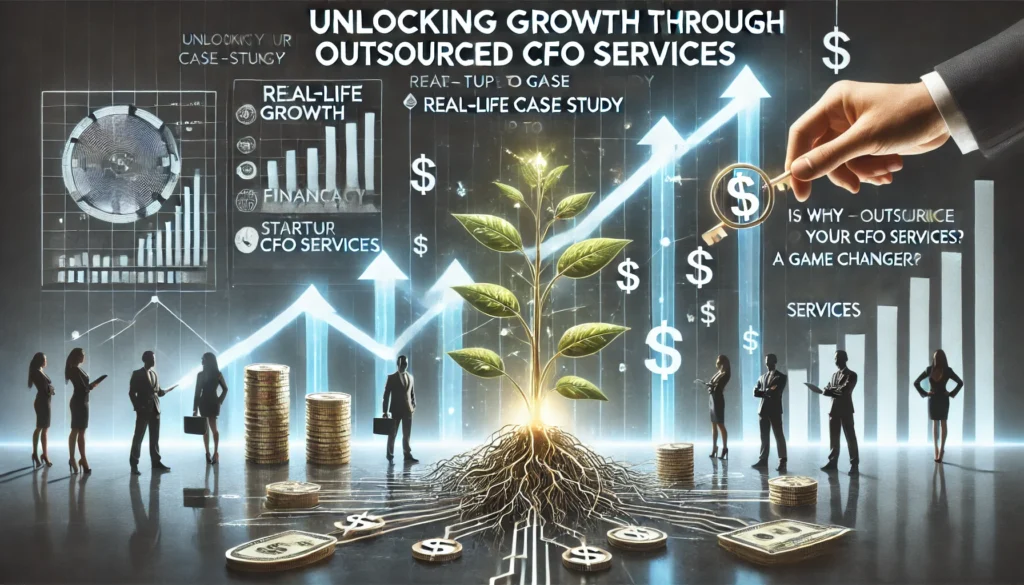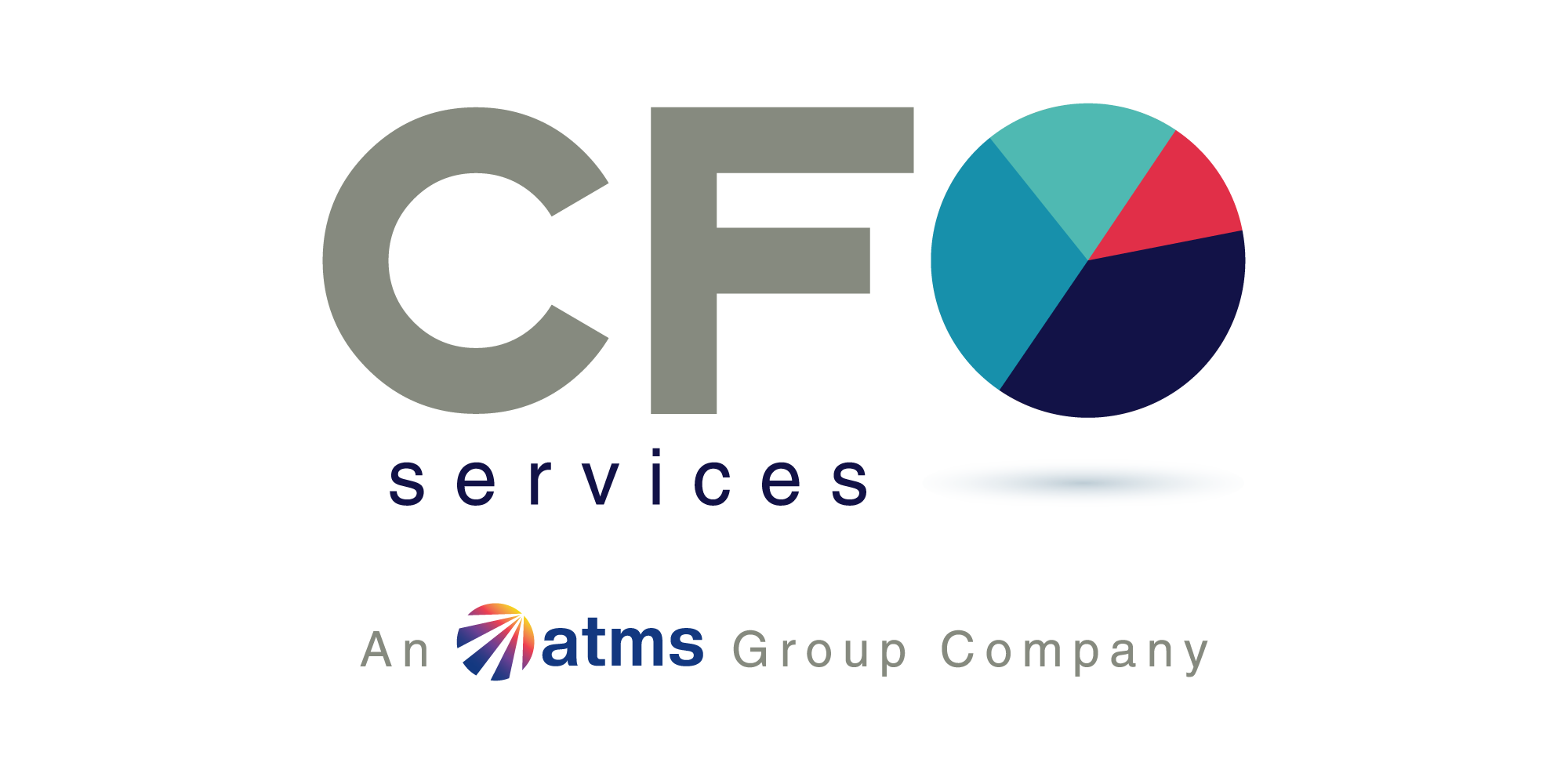Top 5 Signs Your Business Needs a CFO

Five signs your business needs a CFO for growth, cash flow, and strategic direction.
Emerging Trends in Finance & Accounting Outsourcing: 2025 and Beyond

Finance outsourcing evolves with AI, cloud tech, and compliance to drive strategic growth.
How to Start a business in India: A Comprehensive Step-by-Step Guide

Starting a company in India involves legal steps, documentation, compliance, and expert guidance.
How to Choose the Right Accounting Outsourcing Firm for your Business

Choose accounting outsourcing firms by matching expertise, technology, compliance, communication, pricing, and trial.
How a 10% Increase in Effort Can Drive a 150% Increase in Sales: The CFO Approach

Introduction: Sales is a Numbers Game Sales often sounds complex, but when simplified, it’s a science driven by numbers and strategy. At its core lies your sales funnel—a structured process where leads are transformed into revenue. At our Outsourced CFO Services, guesswork is not an option. We meticulously track metrics, study trends, and optimize processes for the best outcomes. Our expertise repeatedly proves one game-changing insight for our clients: a mere 10% increase in effort creates a phenomenal 150% surge in sales. How do we achieve this? By combining sales funnel optimization with strategic accountability. Through our Virtual CFO Services, we make your financial data transparent and empower you to achieve exponential growth. Let’s explore this with a detailed formula. The Sales Funnel: The Foundation of Revenue Growth A sales funnel outlines the journey of potential customers—from showing interest to becoming paying clients. The key stages include: A key transformative metric within these stages is:Average Order Value (AOV) – the average revenue earned per closed sale. At our CFO Services, we refine every step of your funnel and maximize AOV to achieve significant sales growth. Illustration: The Magic of Small Improvements Here’s how even slight adjustments lead to remarkable outcomes: Scenario 1: The Original Sales Funnel Stage Initial Numbers Drop-Off Rate Leads 1,000 50% Qualified Leads (MQLs) 500 50% Meetings 250 50% Quotations Sent 125 50% Confirmations 62.5 – Average Order Value (AOV): ₹1,00,000 Total Sales = 62.5 Confirmations x ₹1,00,000 = ₹62,50,000 Scenario 2: Effort Increase of 10% With just 10% more effort, the drop-off at each stage reduces to 40%. Additionally, the AOV increases by 10% to ₹1,10,000. Stage New Numbers (10% Effort) Drop-Off Rate Leads 1,100 40% Qualified Leads (MQLs) 660 40% Meetings 396 40% Quotations Sent 238 40% Confirmations 143 – New Average Order Value (AOV): ₹1,10,000 Total Sales = 143 Confirmations x ₹1,10,000 = ₹1,57,30,000 The Result: A Staggering 150% Increase in Sales Here’s a comparison of the two scenarios: Percentage Increase: (1,57,30,000−62,50,000)62,50,000×100≈151.7%frac{(1,57,30,000 – 62,50,000)}{62,50,000} times 100 ≈ 151.7% It only takes 10% additional effort to unlock 151% more sales growth. Why This Works: The Power of Optimization and Accountability Sales funnels function like a domino effect. By improving conversion rates at each stage, the results compound. This effect is further amplified by increasing Average Order Value (AOV). Here’s how our Outsourced CFO and Virtual CFO Services drive these results: At our CFO Services, we don’t just analyze numbers; we deliver results that transform your business. Additional Sales Metrics We Track as Your Outsourced CFOs Beyond funnel optimization, these are key metrics we track for growth: Conclusion: Small Efforts, Exponential Results Sales growth doesn’t always require massive leaps. As demonstrated, a 10% increase in effort—combined with higher conversion rates and AOV—can result in a 150% revenue boost. With our Outsourced CFO Services, you gain the strategies, accountability, and visibility needed to drive measurable results. Ready to supercharge your sales growth? Let our Virtual CFO Services help you unlock the power of small, data-driven improvements to transform your business. Illustration Summary: From Effort to Results Stage Original Sales Funnel Optimized Sales Funnel Leads 1,000 1,100 Qualified Leads (MQLs) 500 660 Meetings 250 396 Quotations Sent 125 238 Confirmations 62.5 143 Average Order Value: ₹1,00,000 → ₹1,10,000Total Sales: ₹62,50,000 → ₹1,57,30,000 Discover how 10% more effort can lead to 150% growth—our CFO Services ensure every number works in your favor! Contact us today to elevate your sales strategy and grow your business.
SEBI’s Proposed Changes to SME IPO Norms: An In-Depth Analysis

SEBI’s proposed SME IPO changes aim to simplify process, boost transparency, and investor protection.
The Role of Central Bank Digital Currencies (CBDCs) in the Modern Economy

The Role of Central Bank Digital Currencies (CBDCs) in the Modern Economy Money is as old as mankind has ever existed. Truly said. With everything going digital nowadays in the global village, how can money be left far behind? Be it as a medium of exchange, or as a store of value, the definition of money transformed too. But with the advent of technologies, there also arises an increasing risk of lack of regulation amongst various digital currencies that have sprung up in the past decade. Lack of regulatory authority behind digital assets being the key hindrance factor for many investors to jump in, it was necessitated by the central agencies to exercise some form of regulation to safeguard the investors’ interests in the larger interest. Enter CBDCs – Central Bank Digital Currencies. Riddle me more on CBDCs, please! To put it across in the simplest way possible, CBDCs are interlocutors between innovation and functionality that currencies are supposed to offer. Private digital currencies such as cryptocurrencies and NFTs circulate between people, hence the value of the store is solely determined by their circulation volumes. But, CBDCs being issued and backed by a central bank, their issuance and transactional volumes are controlled by central banks authorized for the said purpose. The growth of private digital currencies and their immense popularity amongst new-age entities compelled the central regulatory authorities to bring the same under its purview. A new age alternative to physical cash, CBDCs are steadily transforming the way financial inclusion is being done in a modern regulated economy. They traverse numerous barriers and help address inclusive challenges aided by existing physical banking infrastructure. This also facilitates the ploughing of more participation amongst the uninitiated in the financial world. Just like the payer of physical cash is untraceable, CBDCs bring in an added benefit of similar anonymity and act as a further catalyst to boosting digitalization on a larger scale in the Indian economy. The Reserve Bank of India (RBI), the nation’s apex regulator issued the E-Rupee or the Digital Rupee in 2022 to bolster India’s digital financial inclusion prospects amongst the unbanked. Issued in various denominations just like physical currency notes, each unit of CBDC issued by the RBI shall be uniquely identifiable & traceable with numbering and impossible to counterfeit by use of advanced security features. Delving Deep into Further Benefits and The Need for CBDCs Apart from the much-obvious benefit of financial inclusion, one of the most notable benefits of implementing CBDCs on a larger scale is reduced cash management costs. Reduction in settlement times and cycles also results in fewer resources used and more transactions, thus speeding up economic growth. Internationally, India has been the forerunner when it comes to innovation and faster implementation of CBDCs. Downtime of international financial transactions can come down significantly once many central banks across various economies start fully implementing CBDCs in their native economy. The biggest facilitator for illicit transactions in the black market remains cash, to this date. Add to that certain cryptocurrencies are used solely to finance criminal activities across borders and are becoming a new headache for law enforcement agencies. CBDCs are traceable by their very nature and hence provide central banks with greater grip over cash flow, and law enforcement agencies with larger teeth to combat tax evasion. They also help central banks retain control over interest rates and money flow in an increasingly digitized economy. Types of CBDCs Central Bank Direct Model requires the transactor to hold CBDCs in accounts directly managed by the central bank issuing the same, thus maintaining absolute control over its issue and use. This model runs the risk of making the conventional banking system redundant. A Two-Tiered Model creates a system where the central bank issues CBDCs to commercial banks that further issue them to potential end users. This model gives the central bank a whip while also encouraging private participation by entities for better implementation. A Hybrid Model brings the best of both together, where commercial banks are entrusted with the issuance of CBDCs for smaller & more frequent transactions and the central bank maintains a hold over transactions that are of more significance. As seen with the case of UPI where it was enabled for SMS users with feature phones, we may also see a similar implementation of Offline CBDCs where transactions may be done even without a metered internet connection. Technologies and Underlying Potential Blockchain remains the underlying seabed of the ocean of digital transactions conducted using CBDCs. It is the main technology that assists in the conversion of and securitization of digital currencies that form the fundamentals of digital transactions. Unlike cryptocurrencies where non-permissioned blockchains rule the roost, CBDCs are enhanced with secure blockchains authorized with adequate permissions that regulate participation and restrict access only to officials with adequate controls. CBDCs are additionally laced with advanced security features to ensure the authenticity and integrity of digital transactions, thus potentially eliminating the risk of counterfeiting and financial fraud. CBDC transactions are also traceable by regulatory agencies, which may help them tackle financial fraud and nullify counterfeiting of currency altogether. However, the realisation of the same depends solely on the implementation of a robust cybersecurity and international cooperation network, since the entire CBDC transitionary phase from a conventional trading system relies entirely on the backing of a strong and impermeable financial security network. Challenges to Full Adoption Never in history had anyone in India must have expected that United Payments Interface (UPI), a seemingly novel payment method would be so successful in a ‘Cash Chalega’ economy. The unharnessed power of CBDCs can significantly transform the payment dynamics in the national economy and it has been successful in the past, with the rapid implementation of UPI by NPCI. More than merely revamping the financial system, CBDCs require the close cooperation of economies to collaborate and pool their resources to ensure sustainable economic growth through the implementation of CBDCs. However, for this to materialize, it is also imperative that there exists
Streamlining Accounting Processes with Outsourced CFO Services

A Chief Financial Officer (CFO)? Outsourcing? CFO (n.): – An independent finance professional appointed as an in-charge to cater to the A to Z of finance of an organization. Also known as an additionally appointed finance director. In today’s ever-dynamic business landscape where evolution in strategies is a must, formulation & implementation of sound financial strategies are vital for the survival of a business organization. A CFO remains the backbone of an organization to the extent financial vitals are considered, with perspectives that help build a business better. Hiring a CFO in flesh may not be a financially sustainable solution for many organizations (especially startups and mid-size) looking towards growth in their respective domains. Hence, just like many other business functions, the need to outsource CFO services to a nuanced expert in this field comes at the right time, especially when competition is cut-throat and focus on key business functionalities is the need of the hour. Enter Outsourced CFOs, also known as Fractional CFOs. The outsourcing of CFO services involves the company management appointing a team of financial experts who are required to work closely with them to provide them with a host of financial services ranging from financial risk management, budgeting & forecasting, financial reporting, and analysing finalized reports to achieve preset financial targets. They may work part-time with the organization or enter into a long-term agreement for the provision of such services, based on the establishment of sound business relations with the parties. Benefits of CFO Outsourcing vis-à-vis Appointing a full-time CFO The guidance and financial expertise of numerous finance professionals excelling in more than just one sub-domain can be of immense value addition to the organization, compared to hiring a single full-time CFO who may or may not necessarily possess the all-around experience that outsourced CFO services offer. Consultants in CFO firms possess numerous valuable insights that may be useful in brainstorming and bettering a certain financial opinion. Tailor-made solutions according to the needs of an organization can be made possible, especially for smaller and mid-sized businesses whose financial needs are required to be custom-built. This ensures that smaller businesses receive the expertise they need to work on improving financial performance. Financial plans and forecasts are built based on the long-term business goals and the current financial standing of the organization. Documentation of transactions and need-based presentation of financial records often become the responsibility of CFO firms. A summarized form of use of funds is readily available, thus giving an insight into whether any excess expenditure is considered wasteful and needs to be curtailed. CFO firms are entrusted with the preparation and presentation of financial reports for use by stakeholders & regulatory authorities. CFO firms function as next-door financial doctos to organizations, thus ensuring their valuable and steady growth through time. They save time and effort for companies who can direct their limited resources to be utilized elsewhere. In the unfortunate event of financial difficulties, a team of experienced CFOs can help the organization tide over the same and help increase profitability and future financial security for an organization. Furthermore, the scope of CFO services includes their responsibility of advising the management in advance about any potential red flags that may put the organization’s finances in peril. It also helps manage the company’s overall cash flows by suggesting a pattern of expenditure flow to be followed, hence safeguarding it from any untoward market headwinds. Besides long-term financial insights, the day-to-day accounting functions such as handling financial transactions, choosing the right accounting system, payroll management, budgeting & short-term forecasting, cash flow analysis, etc. are also skilfully executed by CFO firms. Outsourcing CFO Services: Is it for my business? CFO services can be outsourced either part-time or full-time based on the requirements of every organization. For specialized full-time CFO services coming from outside the organization, it is vastly superior in quality when it comes to financial enlightening and able guidance. For an organization to decide whether it should outsource its CFO services in the first place, it must first evaluate the stage at which it is situated compared to its peers in the market. It is to be opted for especially if an organization has just commenced operations and is unable to understand the finer nuances of budgeting, forecasting & analysis of financial data. Also, there are cases, where the new organization lacks the expertise and strength for financial execution or a more structured & refined financial analysis, is sought after, compared to what is usually prepared by novice accounting staff. CFO services fill the void here by scrutinizing the financial strengths & weaknesses and suggesting areas of improvement. By calculating financial metrics & ratios, it estimates projections for the forthcoming financial years and advises organizations concerning the same. It helps reduce expenses without compromising on the quality delivered. Other primary areas where CFO services are helpful include preparation of periodic financial reports, M&A analysis, banking, fundraising, profit margin analysis, evaluating expansion proposals, investment analysis, etc. About cash flow management, outsourced CFOs monitor cash flow and ensure that organizations have enough funds in their tap to meet their financial obligations. Additionally, they assist organizations in identifying potential areas of cost reduction and revenue generation, helping them achieve their financial targets more ably and transparently. CFO firms also ensure that organizations duly abide by taxation compliance & financial reporting regulations to avoid monetary penalties and legal issues. Lastly, if one desires to make their workplace a more productive outlet where employees are focused on achieving more worthwhile tasks, they must be given ample time to focus on issues that propel the business ahead. Strategic Financial Planning and CFO Outsourcing: Need of the Hour Hiring a full-time in-person CFO, over the turn of the clock’s needle, proved to be financially unsustainable for smaller and mid-sized organizations having finite resources at their disposal. Without having to provide for the same, outsourcing CFO services has made seasoned professionals accessible to all, who can tailor the unique requirements of their clients and payment
Beyond the Bottom Line: Understand Profit, Cash Flow & ROI Dynamics

Profit, cash flow, and ROI together reveal true business financial health and success.
Understanding the Working Capital Cycle: Key to Business Success

Understanding the working capital cycle helps businesses optimize cash flow and ensure smooth operations.


